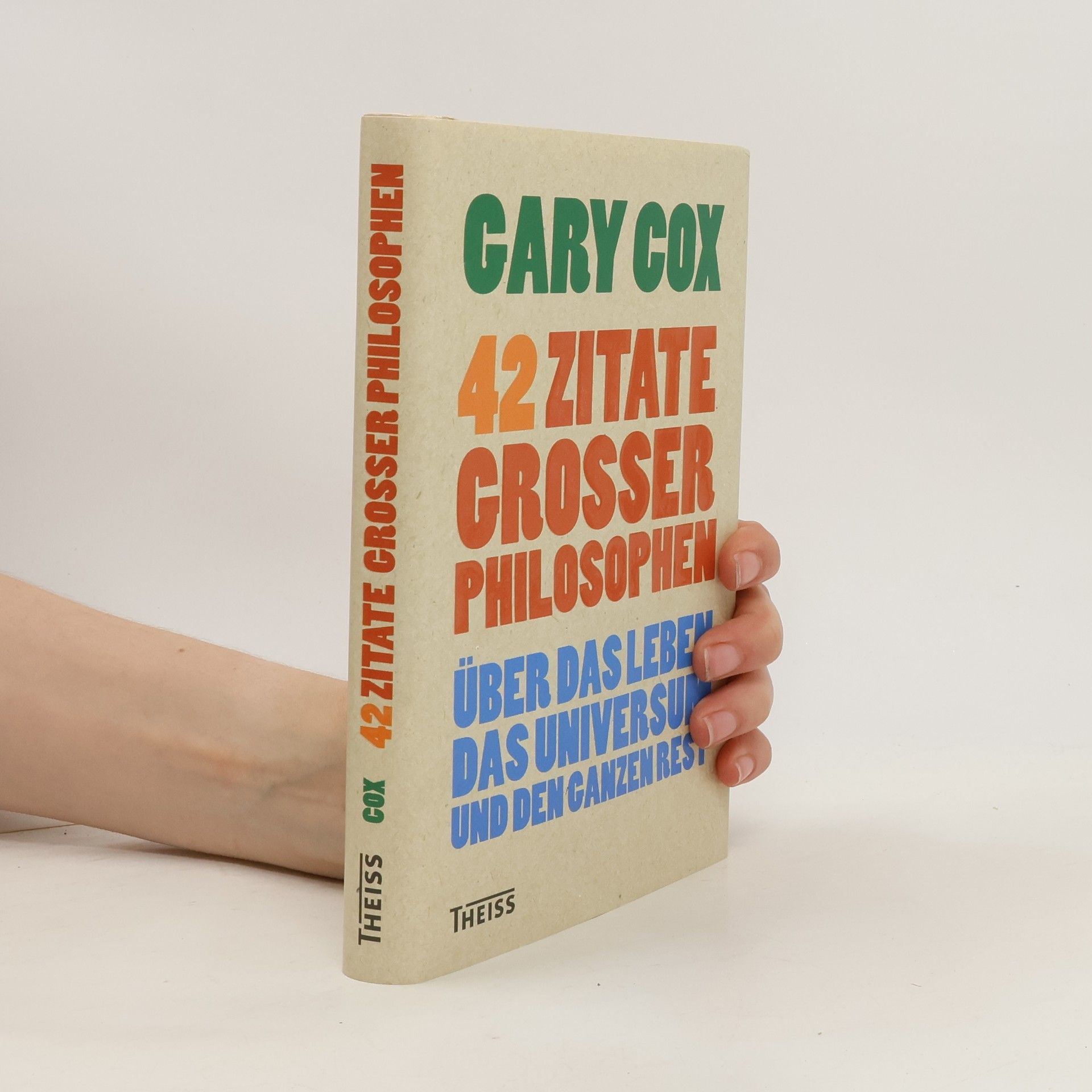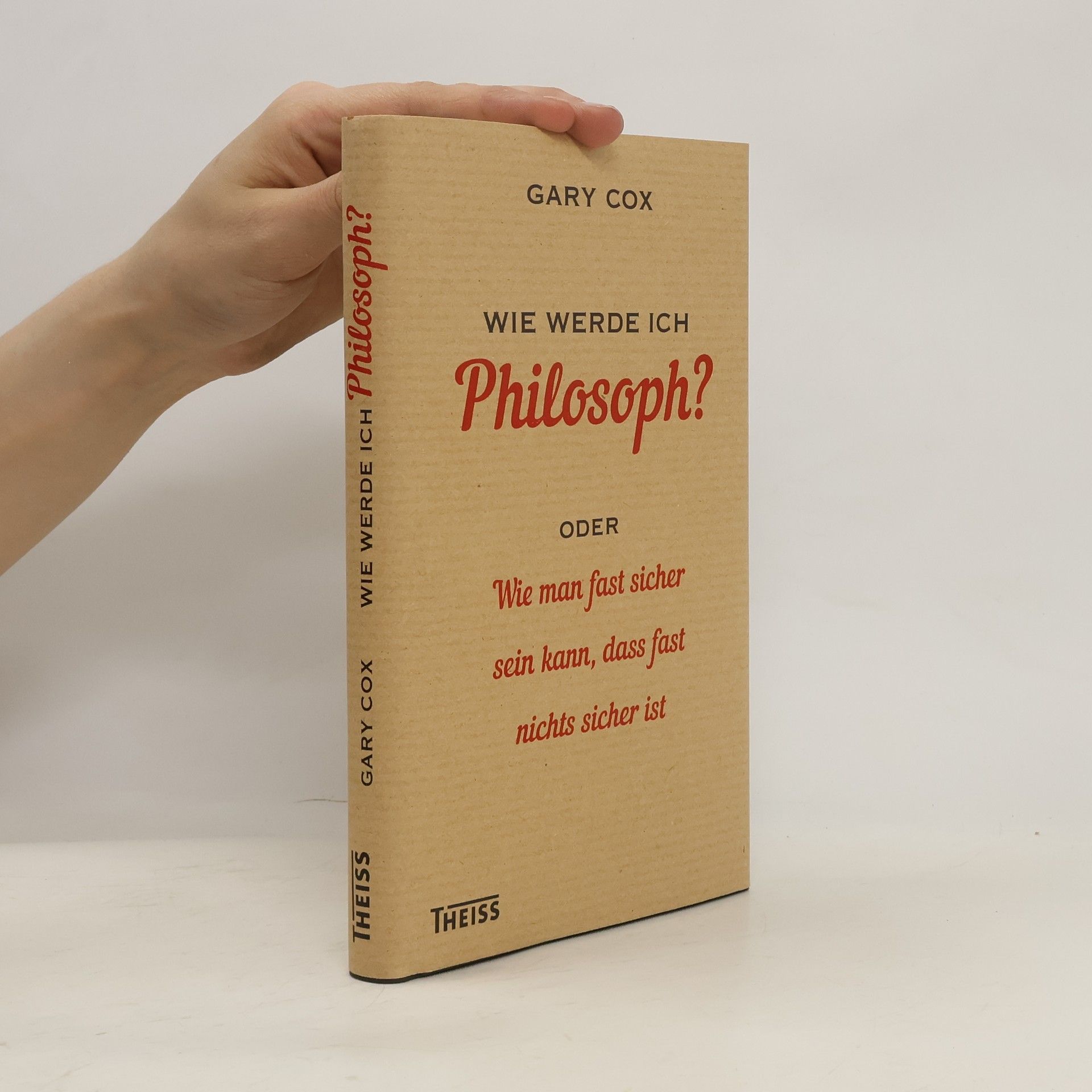Exploring Sartre's maxim 'Hell is other people!', Gary Cox delves into existential themes surrounding the human condition and the self. He examines how our understanding of selfhood influences interpersonal dynamics, shedding light on the complexities of relationships and the inherent struggles they entail. Through this analysis, Cox offers a profound reflection on the interplay between individuality and social interaction.
Gary Cox Book order (chronological)
Gary Cox is a British philosopher and biographer, known for his insightful works on Jean-Paul Sartre, existentialism, and broader philosophical topics. His writing delves into fundamental questions of human existence, freedom, and ethics. Cox critically examines the challenges of finding meaning in contemporary life. He offers a clear and analytical approach to complex philosophical ideas.






Blacksnake Blues: Volume 3
- 192 pages
- 7 hours of reading
The narrative follows Karen Blacksnake, a Navajo woman who escapes from the mob's sex slave industry after five harrowing years, killing her captor in the process. Now a fugitive pursued by both the FBI and the mob, she teams up with Raxi Malcom, an eight-year-old homeless girl, and her sister Zeebee. Together, they navigate a perilous journey to find safety while evading their relentless pursuers, highlighting themes of resilience, survival, and the bond formed in crisis.
The Girls of the White Platypus Totem: Volume 2
- 190 pages
- 7 hours of reading
"The Girls of the White Platypus Totem" tells the story of Tildey Starling and Carmella Blacksnake as they are swept up into a spiritual adventure in the super-remote Great Sandy Desert of Western Australia. The two climate activist friends are called upon by the Pope to investigate strange pictographs of a white platypus that begin popping up in Western Australia and the Northern Territories, sending Aborigines into an uproar and heralding a new cycle for planet earth. The novel was inspired by Peter Weir's 1977 Movie, The Last Wave. Following the first book in the series, "Glass Towers and Goats", Tildey and Carmella find themselves swept up into an investigation of mysterious unrest among traditional Aborigines in the remote Great Sandy Desert of Western Australia. Pursued by predatory academics in league with the army, the two flee across the ocean with the Pope's pilot in the papal jet. Then they travel by Land Rover and horseback to a remote convent, St. Mechtilde's of the Desert, to launch an investigation of strange spiritual happenings originating from the mysterious, cave infested, limestone plateau. Meanwhile, their pursuers have not given up.
Beyond the Reach of Words
- 358 pages
- 13 hours of reading
"Beyond the Reach of Words" explores the teenage years and early adulthood of composer and musician Johann Sebastian Bach, told from the point of view of Bach's friend Edmund. Bach was renowned, especially in his youth, for his improvisational abilities on the organ. Like modern-day music fans, the boys follow an early 18th century music group on its way to Lübeck, Germany. There, they find the great musician Dietrich Buxtehude, who is searching for a successor for his position as chief organist at St. Mary's Cathedral.Buxtehude believes his successor must marry his own daughter, 34-year-old Anna Margareta. While Bach possesses the musical prowess and talent for the role, he is already engaged to his cousin Maria Barbara.Though much has been written about the famous musician, very little is known about his personal life. This book is an imaginative exploration into Bach's formative years, including his time at the Luneburg Latin School and his first posts in orchestras in Weimar and Arnstadt.
Exploring the concept of goodness, this book delves into the nature of being a good person and the complexities of moral action. It raises critical questions about the right actions to take, whether they involve rationality, happiness, moderation, or respect for freedom. The author examines how these elements might combine and vary based on different situations, inviting readers to reflect on their own moral beliefs and practices.
Deep Thought
- 208 pages
- 8 hours of reading
Gary Cox guides us through 42 of the most misunderstood, misquoted, provocative and significant quotes in the history of philosophy providing a witty and compelling commentary along the way. This entertaining and illuminating collection of quotes doesn't merely list who said what and when, it explores who each philosopher is and what he or she really meant when they said what they said. Viewing each quote as a philosophical thesis in itself, Cox probes the writings of everyone from Douglas Adams to A.J. Ayer and Thomas Aquinas to Karl Marx. This is a philosophical journey through history, culture and writing to bring us to a deeper understanding of why we think the way we do. As Douglas Adams points out, if there is no final answer to the question, 'What is the meaning of life?', '42' is as good or bad an answer as any other. Here Cox shows that 42 quotes might be even better!
Marketing Sovereign Promises
- 232 pages
- 9 hours of reading
This book offers a new theory of state growth, based on the creation of credible and prudent state budgets.
»Gott ist tot«, »Der Mensch ist das Maß aller Dinge« oder »Ich denke, also bin ich« - all dies sind Zitate großer Philosophen, die im täglichen Sprachgebrauch häufig fallen. Doch was sie eigentlich bedeuten, ist nur den wenigsten bekannt. In einem ebenso unterhaltsamen wie aufschlussreichen Streifzug durch die Philosophiegeschichte geht Gary Cox in seinem neuen Band dieser Frage auf den Grund. Anhand 42 der wichtigsten, provokantesten, falsch zitierten und falsch verstandenen Gedanken gibt er einen kompakten Überblick über die Lehren der größten Denker und erläutert in leicht verständlicher und anregender Sprache, was mit den Zitaten ursprünglich gemeint war. Von Douglas Adams bis Wittgenstein, von Platon bis Hegel - Cary Cox nimmt seine Leserinnen und Leser mit auf eine einzigartige Reise durch die Geschichte der Philosophie. Und er zeigt, warum es nicht nur eine Antwort auf das Leben, das Universum und den ganzen Rest geben kann.
Sind Sie mit den großen Fragen des Lebens auch oft überfordert? Seien Sie beruhigt: Dieses Buch hilft Ihnen. Es liefert Antworten, zeigt aber auch, dass manche Fragen überhaupt nicht gelöst werden können. Informativ und gleichzeitig humorvoll gibt diese Gebrauchsanweisung zum Philosophieren Auskunft über die großen Themen, mit denen sich die Philosophen seit Jahrhunderten beschäftigen. Zahlreiche Beispiele aus der Popkultur wie ›Family Guy‹ und ›Monty Python's Flying Circus‹ illustrieren die philosophischen Ideen. Gleichzeitig können Sie so einiges lernen: - Wie man jede Debatte gewinnt, indem man die Menschen in eine philosophische Diskussion verwickelt - Wie man das letzte Wort behält bei der Frage, ob ein fallender Baum ein Geräusch macht, wenn keiner ihn hört - Zu denken, zu sprechen und zu argumentieren wie ein großer Philosoph.
How to Be an Existentialist
- 144 pages
- 6 hours of reading
The 10th anniversary edition of a witty classic about the philosophy of existentialism. It is also a genuine self-help book offering clear advice on how to live according to the principles of existentialism formulated by Nietzsche, Sartre, Camus, and the other great existentialist philosophers. An attack on contemporary excuse culture, the book urges us to face the hard existential truths of the human condition. By revealing that we are all inescapably free and responsible - 'condemned to be free,' as Sartre says - the book aims to empower the reader with a sharp sense that we are each the master of our own destiny. Cox makes fun of the reputation existentialism has for being gloomy and pessimistic, exposing it for what it really is - an honest, uplifting, and potentially life changing philosophy! This striking 10th anniversary edition with a substantial new preface includes more pointers on how to be a true existentialist, including how to be an existentialist at a time when environmental issues are becoming ever more pressing and our 'post-truth' world increasingly subjects us to the politically polarising power of simplistic social media.

